Best protein powder: protein supplements and bars to help you lose weight well and achieve your fitness goals
This article contains affiliate links. We may earn a small commission on items purchased through this article, but that does not affect our editorial judgement.


The temptation to opt for a fad diet – Bas Kast, no carb, low carb, 5:2, Paleo (its an endless, vaguely dystopic list) – is always strong, despite the fact that the fundamentals of a good diet remain evergreen.
Want to lose weight permanently? Reduce your calorie intake – not a lot, but consistently. Want to add muscle? Exercise using free weights, and increase your calorie intake – not a lot, but consistently. Want to run your first 5K, half, full marathon? Ensure you're eating a balanced diet, to fuel your increased activity.
That said, if you are looking to add muscle to your frame, lose weight, or exercise more, adding protein to your diet is an effective means of aiding your goals.
Why is protein useful when dieting?
First and foremost, protein-rich foods aid satiety. They take longer to leave your stomach than carbohydrates, meaning you feel fuller for longer, and are less inclined to over-eat or snack. Consider how you feel eating a round of toast versus a chicken breast – the latter is infinitely more filling.
In addition to this, if you're hoping to lose weight using a calorie restrictive diet, keeping your protein intake high will serve to ensure that weight lost is fat, not muscle. Your body utilises the amino acids in protein to build lean muscle, leaving you stronger and more toned. It makes for a more efficient metabolism, which in turn aids fat loss.
Why is protein useful for building muscle?
If you want to add lean muscle mass to your frame, you need to eat an appropriate amount of protein, in addition to your weight lifting routine. The macronutrient works to repair muscle tissue 'torn' during each workout. To build muscle, your body needs to synthesise more muscle protein than it breaks down, which is why you need to up your intake if you're looking to bulk.
Unfortunately, the correct amount of protein has been mis-sold by some – unless you're an elite athlete, you won't be needing to eat as much as 200 grams of protein a day. A protein calculator, such as this one, is the best way of tailoring your protein intake to your planned goals.
Why use supplemental protein?
Adopting sound nutritional habits is more complicated than simply knowing what they are. Most of the best sources of protein – chicken, steak, eggs, cheese – require more lengthy preparation than their carbohydrate housemates. They're also more difficult to transport, and often include or require additional fat to prepare, meaning that in trying to incorporate more protein in your diet, you'll also incorporate unwanted calories.
Enter: the protein supplement. A shake, bar, or snack can easily incorporate balanced protein (and accurate micro-nutrient data) into your diet easily. We've used them to assist in our fitness goals over the past eight years, and the right ones are a tasty addition to a healthy, balanced diet.
Here are our favourite (and best tasting) options.
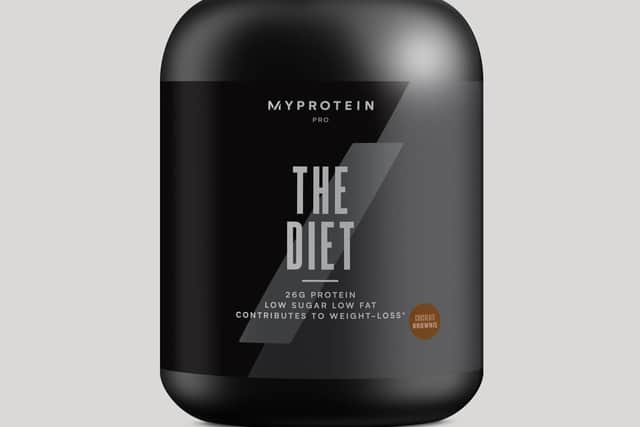

A whopping 25 grams of protein at 118 calories per serving, we love this protein powder as a meal supplement. When drunk at breakfast it comfortably kept us full until lunchtime.
The shaker it comes with works excellently to incorporate the powder into whatever liquid you're using (a perennial issue with protein powders, which can clump and sit grittily on a liquid surface).
The chocolate brownie flavour tastes beautiful mixed into a milkshake: we make ours with one frozen banana and almond milk, for a seriously thick milkshake that comes in at around 250 calories.
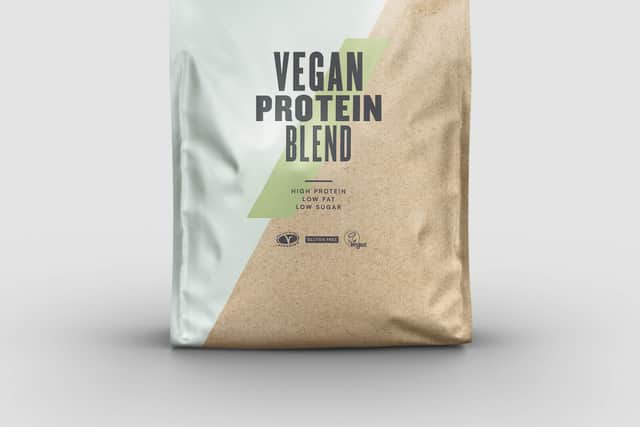

The best of the vegan protein powders we've tried (and trust us, there are some truly dire options out there for those who eschew animal products).
Our favourite flavour here is coffee and walnut, which manages to avoid the overly sweet, synthetic taste of many protein powders. It tastes brilliant mixed in with cold coffee and shaken over ice if you want a serious jolt in the morning.
With 22 grams of protein and only 110 calories per serving, this is an impressive choice for those who adhere to a plant-based diet.
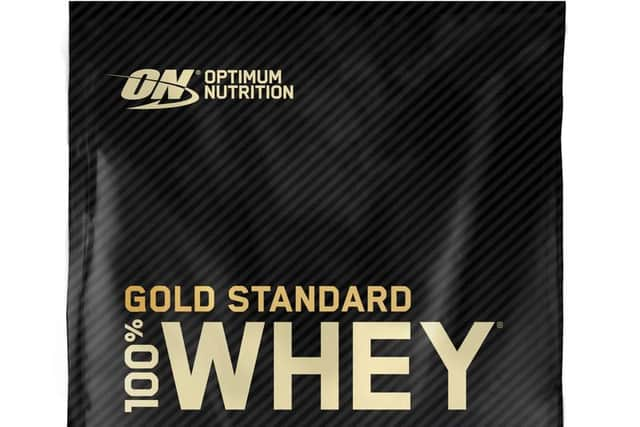

Our weight-lifting friends looking to add mass practically live off Gold Standard Whey. It's easy to see why: tasty, packed with 24grams of protein per serve, and packed in whopping great big 4.5kg bags, it will comfortably sit in your store cupboard to be used for weeks (or months).
We found it delicious for making protein pancakes – once scoop protein powder, one scoop rolled oats, blended together in a food processor with 1 large ripe banana and 2 large eggs forms a protein packed batter.
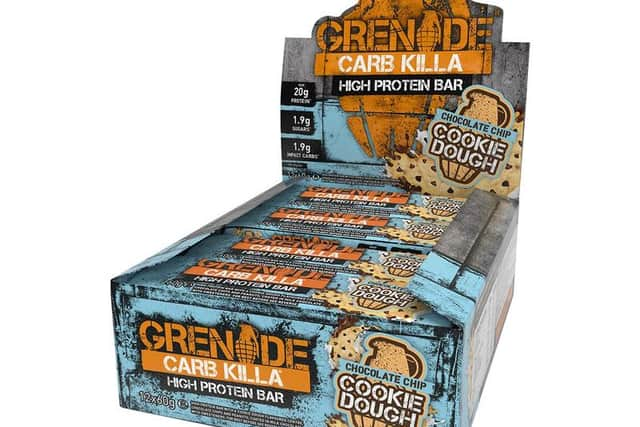

The Carb Killa range are superb. They taste almost indistinguishable to regular chocolate bars, only with under 2 grams of sugar, 20 grams of protein per bar, and dietary fibre (they're favoured by diabetics).
The white salted peanut is particularly moreish – better, we dare say, than a Snickers. Divine.
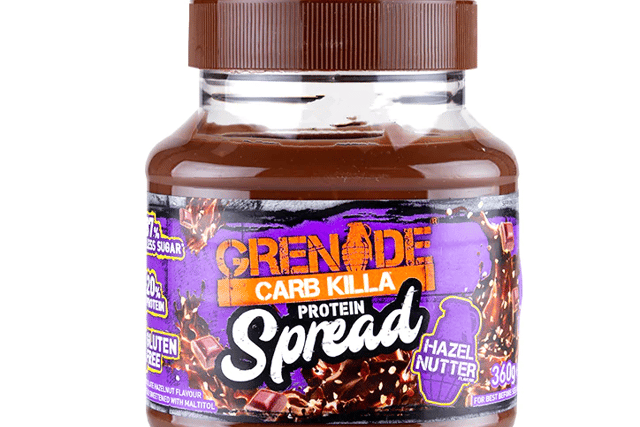

While, realistically, you're not getting a tremendous amount of protein per serving with this (about 5 grams per tablespoon), the benefit of this protein-rich spread is that it tastes like Nutella – with a fraction of the sugar, fat, or calories.
Utterly delicious, it's much less ruinously calorific than the popular breakfast spread it emulates.
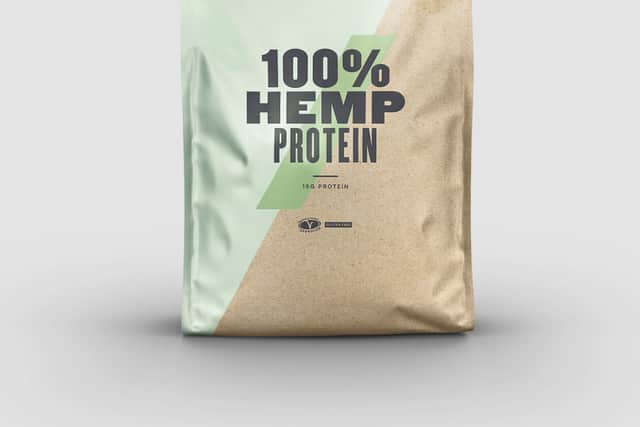

You may have noticed a theme in the protein powders rounded up so far: they’re all sweet. If you don’t favour that, this plant-based powder is a terrific alternative. It’s not bitter at all, but rather tastes faintly grassy - a pleasantly vegetable taste.
It’s free from any animal products, and we found it to be easy on the digestive system too, which some protein powders aren’t. With 15 grams of protein per serving, it postpones hunger and fuels work-outs well. Be advised, though: this is strictly for people who enjoy earthier tastes.
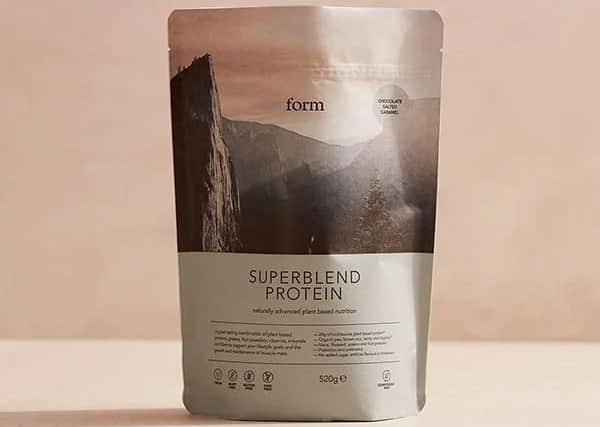

Protein powders can be a bit scary if you look at the ingredient list: there are lot of polysyllabic names there, hard to identify. Superblend’s ingredient list -while long - is reassuringly familiar. It’s packed full of known superfoods, such as maca, flaxseed, spirulina, hemp, and broccoli.
As it’s plant-based (and yes, vegan), it manages to be free of artificial flavours, sweeteners, or added sugar. If that natural profile makes it sound like it will taste bad - rest assured, this is a delicious option. Erring towards the sweet, it’s smooth, not to heavy, and not gritty. A great option.
